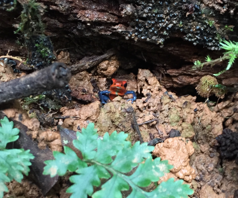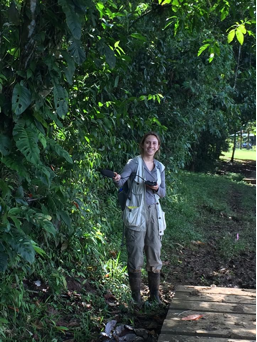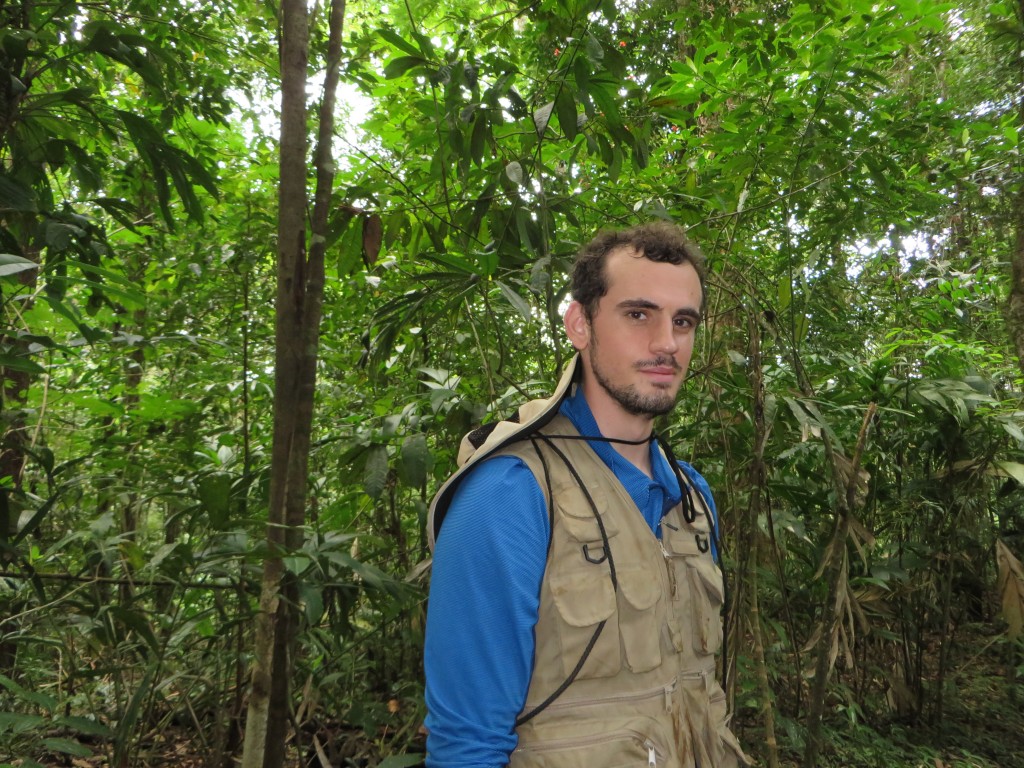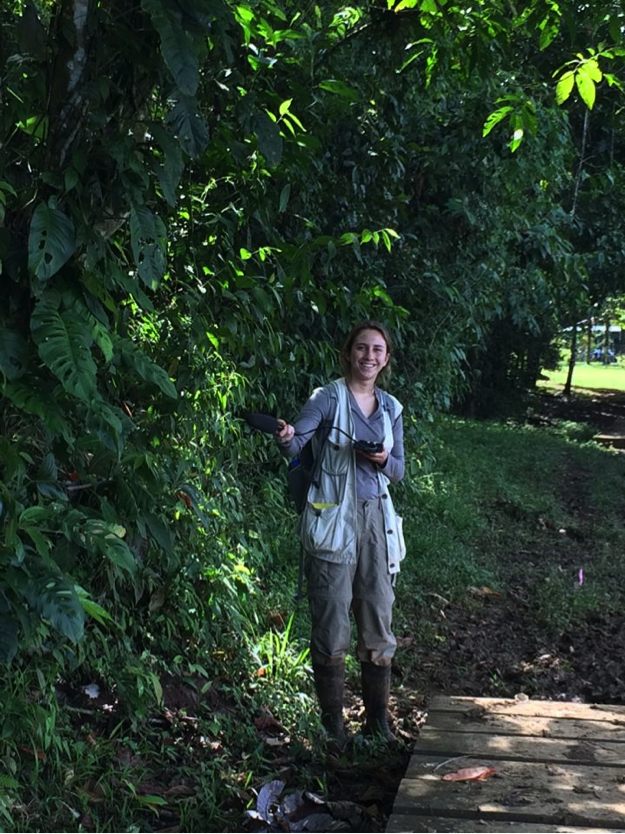
For the past 11 weeks we have been participating in a Field Biology Quarter for UCLA. We have planned two projects, travelled to a private section of rainforest in Nicaragua, hiked and collected data daily for three weeks, and came back to UCLA to analyze the data and sum up our projects in two papers. We have learned an immense amount, mostly on how challenging the complete process of carrying out a research study from start to finish can be. We are here now to tell you a little bit about one of our projects, in which we spent hours on end listening for the calls of strawberry poison dart frogs.
Ecotourism is growing in popularity and bringing with it anthropogenic effects to areas previously not exposed to human noises. These noises come from motorboats passing by edges of rainforests, airplanes flying by, and hikers hiking through trails of rainforests. We were interested in studying the species Oophaga pumilio, otherwise known as the strawberry poison dart frog. This frog is very recognizable with its red body and blue legs, while the males also have a very distinguishable call. The males of this species call to advertise their territories and to attract females to mate. We looked into multiple aspects of human interference with the calls in this species.
We conducted two experiments during our time in Nicaragua. In the first, we hypothesized that larger groups of hikers will have more of an effect on the call characteristics of a frog in comparison to small groups. In the second, we hypothesized that frogs residing near to a human settlement will respond differently to hikers passing by than frogs residing farther from human presence.
We found that hiker group size and distance to human settlement did not have a main effect on different aspects of frog calls. This is positive news for the frogs, as the presence of humans walking and talking along trails does not seem to have negative impacts. An aspect that we were not able to study with the calls of the strawberry frogs is the fundamental frequency of call, which has been shown to change in response to urban noise in other species.



